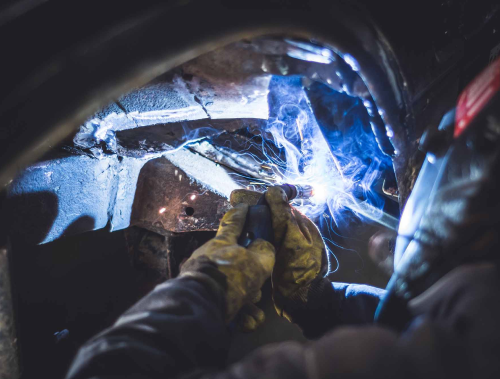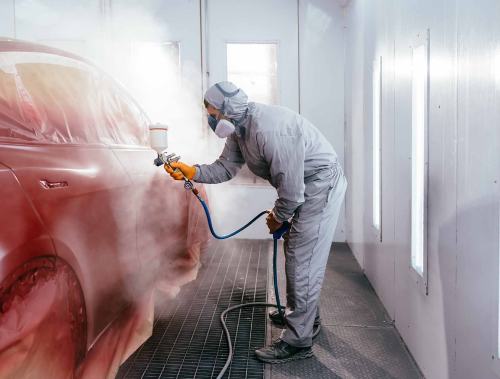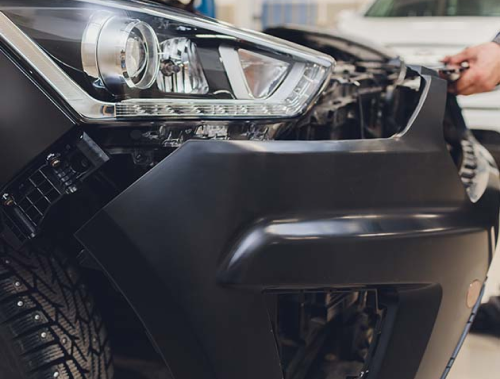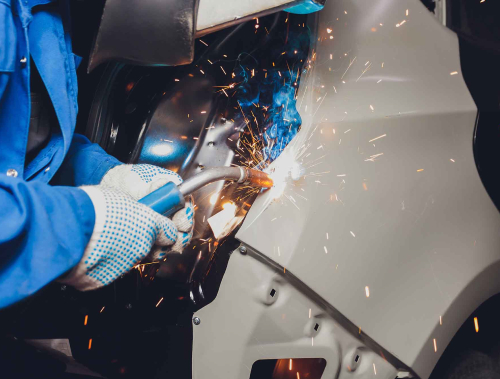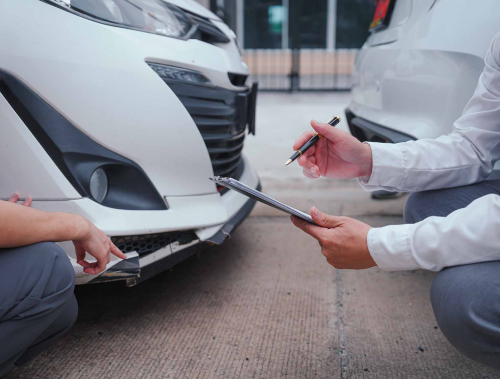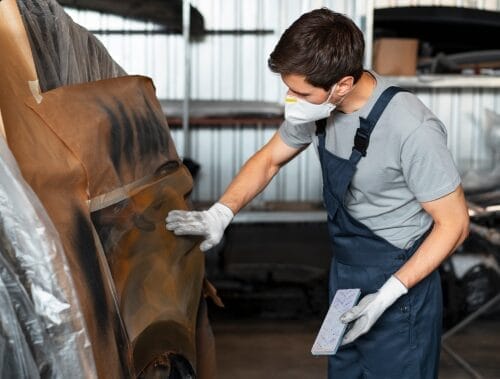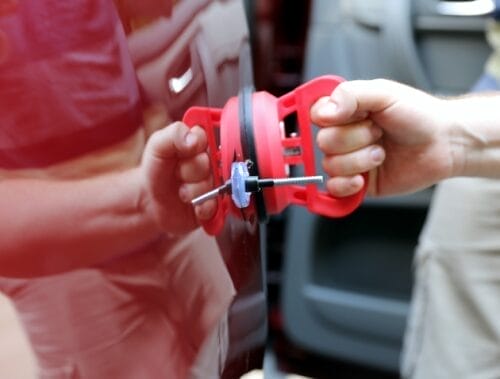Being involved in a car accident can be a stressful experience, and navigating the repair process afterward can add to that stress. For Pennsylvania residents, understanding the steps to take following a collision is crucial to ensuring that your vehicle is repaired correctly and that you are treated fairly by insurance companies. This guide provides a comprehensive overview of what to do after a car accident, from immediate actions to choosing the right repair shop and understanding your legal rights.
Immediate Steps After a Collision
Taking the right steps immediately after a collision can set the foundation for a smooth repair and insurance process.
Contacting Authorities
- Police Report: One of the first things you should do after a collision is contact the police. Filing an official police report is crucial, as it serves as an authoritative record of the incident. This report will be important for both insurance claims and any potential legal disputes. Make sure to provide accurate information to the responding officers and obtain a copy of the report for your records.
Documenting the Scene
- Gathering Evidence: Thoroughly documenting the accident scene is essential. Take photos of all vehicles involved, focusing on the damage, license plates, and any relevant road signs or signals. Additionally, gather contact information from any witnesses and make a note of the time, weather conditions, and any other details that might be relevant. This evidence can be invaluable when dealing with insurance companies or if there are any disputes about the cause of the accident.
Seeking Medical Attention
- Injury Documentation: Even if you feel fine immediately after the accident, it’s important to seek medical attention. Some injuries may not be apparent right away, and having a medical record from soon after the collision can be crucial if you need to file a claim later. Keep detailed records of all medical visits, treatments, and expenses, as these will be necessary for any personal injury claims.
Navigating the Insurance Process
Understanding your insurance policy and effectively dealing with your insurance company are key steps in handling car repairs after an accident.
Understanding Your Insurance Policy
- Coverage Details: Before filing a claim, review your insurance policy to understand what is covered. This includes knowing the difference between liability, collision, and comprehensive coverage. Each type of coverage plays a different role in the repair process, and understanding your policy will help you navigate the claims process more effectively.
- Filing a Claim: When you’re ready to file a claim, gather all necessary documentation, including the police report, photos from the scene, and any medical records. Submit your claim promptly and keep a record of all correspondence with your insurance company. Be aware of any deadlines that may apply to filing claims to ensure that you don’t miss out on coverage.
Dealing with Insurance Companies
- Communicating with Adjusters: Interacting with insurance adjusters can be a delicate process. It’s important to be clear and concise in your communication. Provide all requested information promptly, but avoid making statements that could be interpreted as admitting fault. Keep a detailed log of all communications, including dates, times, and the names of the people you speak with.
- Understanding Payouts: Insurance payouts are typically based on the estimated cost of repairs or the value of the vehicle if it’s deemed a total loss. If the settlement offer is lower than expected, you have the right to negotiate. Gather evidence, such as repair estimates from multiple shops, to support your case for a higher payout if necessary.
Choosing a Repair Shop in Pennsylvania
Selecting the right repair shop is crucial to ensuring that your vehicle is repaired properly and that the process is as smooth as possible.
Finding a Reputable Shop
- Researching Options: Start by researching local repair shops. Look for reviews on platforms like Google and Yelp, and ask for recommendations from friends, family, or colleagues who have had similar experiences. A shop with positive reviews and a solid reputation in the community is likely to provide quality service.
- Certifications: Ensure that the repair shop you choose has proper certifications, such as ASE (Automotive Service Excellence) or I-CAR (Inter-Industry Conference on Auto Collision Repair). These certifications indicate that the technicians are trained and up-to-date on the latest repair techniques and standards, which is crucial for ensuring quality workmanship.
Insurance-Preferred Shops vs. Independent Shops
- Advantages and Disadvantages: Your insurance company may recommend a preferred shop, which can offer convenience and potentially lower costs. However, you are not obligated to use their recommendation. Independent shops may offer more personalized service or specialize in certain types of repairs. Weigh the pros and cons of each option to determine which shop is the best fit for your needs.
Obtaining Repair Estimates
- Multiple Quotes: It’s always a good idea to obtain repair estimates from several different shops. This allows you to compare prices and services, ensuring that you get the best value for your money. Be sure to get these estimates in writing.
- Understanding Estimates: When reviewing estimates, make sure you understand the breakdown of costs, including parts, labor, and any additional fees. Ask questions if anything is unclear, and ensure that the shop is using quality parts that meet or exceed original equipment manufacturer (OEM) standards.
Understanding Legal Rights in Pennsylvania
After a car accident in Pennsylvania, it’s crucial to understand your legal rights, especially concerning fault determination and liability. Knowing these aspects can help you navigate the repair process and ensure that you are treated fairly by insurance companies.
Fault Determination and Liability
Pennsylvania operates under a unique system that combines elements of both no-fault and at-fault insurance, which can affect how liability is determined in car accidents.
- State Laws: Pennsylvania is a “choice no-fault” state, which means that drivers can choose between no-fault and traditional liability coverage when purchasing their auto insurance. Under no-fault insurance, your own insurance company covers your medical expenses regardless of who caused the accident. However, you can only sue the other driver for pain and suffering if your injuries meet certain thresholds. If you opted for traditional liability coverage, you can pursue claims directly against the at-fault driver.
- Liability Coverage: If you are at fault for the accident, your liability coverage will pay for the other party’s damages up to the limits of your policy. If the other party is at fault, their insurance should cover your damages. Understanding who is at fault is crucial, as it affects whose insurance will pay for the repairs and whether you can pursue additional compensation through legal action.
Dispute Resolution
Disputes can arise during the insurance claims process, especially if you disagree with the insurance company’s assessment of fault or the payout amount.
- Challenging Insurance Decisions: If you believe that the insurance company’s decision is unfair—whether it’s about fault determination or the payout—you have the right to dispute it. Start by reviewing your policy and the insurer’s reasoning. You can provide additional evidence, such as repair estimates, photos, or witness statements, to support your case. If the dispute cannot be resolved through direct communication, you may consider escalating it to a state insurance regulator or using an arbitration process if available.
- Legal Assistance: If disputes cannot be resolved directly with the insurance company, or if you feel that your rights are being infringed upon, seeking legal advice is a smart move. An attorney who specializes in car accident cases can help you understand your options, represent your interests, and potentially negotiate a better settlement on your behalf. In more serious cases, they can assist with filing a lawsuit if necessary.
Final Steps After Repairs
Once your vehicle has been repaired, there are a few final steps you should take to ensure everything has been handled properly and that your claim is closed out correctly.
Inspecting the Repairs
- Quality Check: Before you drive away, thoroughly inspect your vehicle to ensure that all repairs have been completed to your satisfaction. Check for proper alignment of body panels, consistent paint color, and that all mechanical repairs are functioning as expected. Don’t hesitate to ask the repair shop to correct any issues you find before accepting the vehicle.
- Documenting Repairs: Keep a detailed record of all the repairs performed, including invoices, receipts, and any communications with the repair shop. This documentation can be invaluable if issues arise later or if you need to reference the repairs for any future claims or vehicle sales.
Finalizing the Claim
- Closing the Case: Once you’re satisfied with the repairs, contact your insurance company to finalize the claim. Ensure that all paperwork is completed, and confirm that there are no outstanding issues. This step is important to avoid any potential complications or delays in receiving your final settlement.
Conclusion
Handling car repairs after a collision in Pennsylvania involves several critical steps, from understanding your insurance policy to choosing the right repair shop and knowing your legal rights. By taking the time to document the accident, navigate the insurance process carefully, and inspect repairs thoroughly, you can ensure that your vehicle is restored to its pre-accident condition and that your rights are fully protected. Whether you’re dealing with insurance companies, repair shops, or potential legal disputes, being informed and proactive is the key to a smooth and successful outcome.

